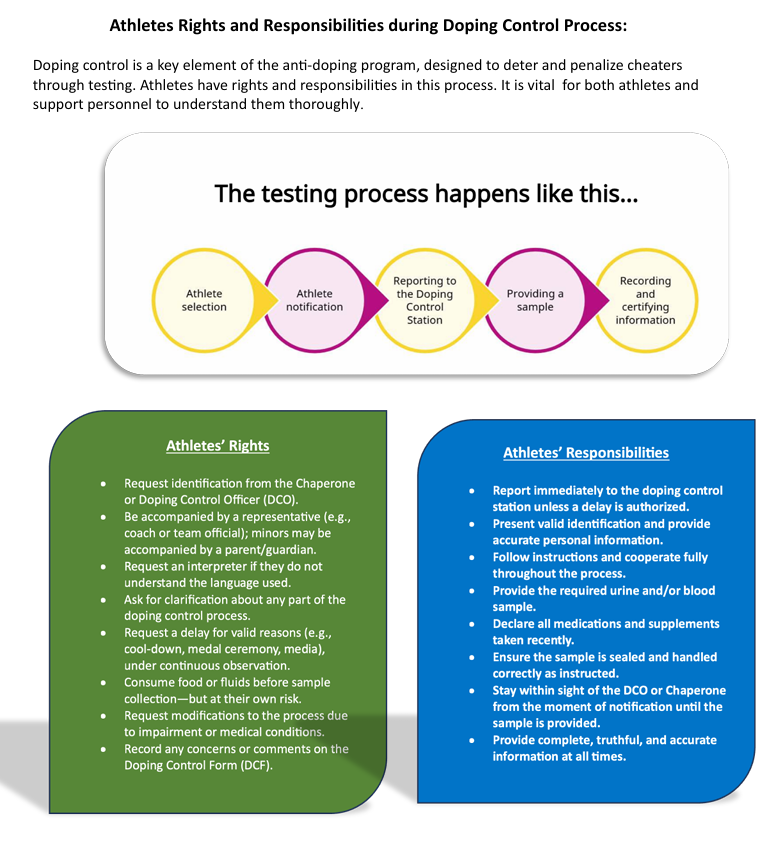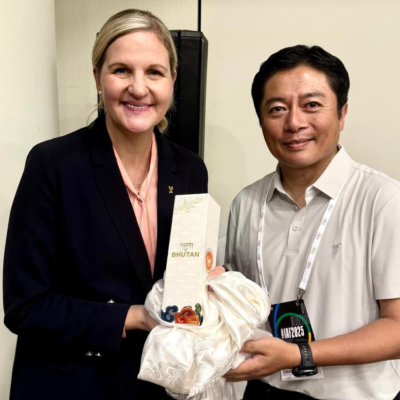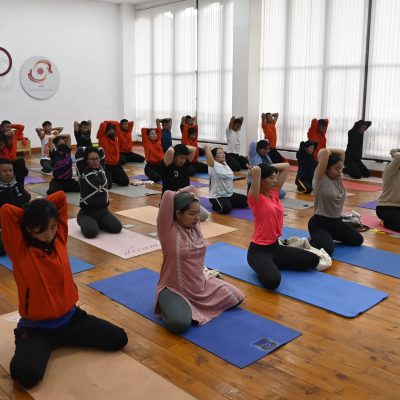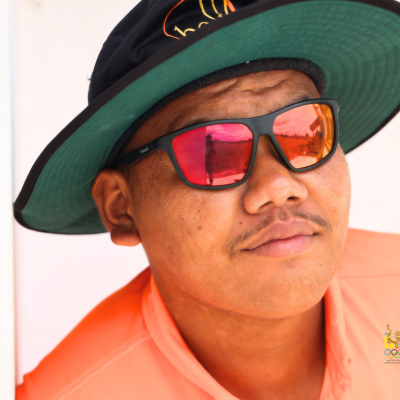A Guide for Athletes During the Doping Control Process
Insights by Nima Gyeltshen
In this week’s Clean Sport Weekly – Insights by Nima Gyeltshen, I want to speak directly to our athletes, coaches, and sporting community. There’s a silent line that separates ambition from abuse, effort from shortcuts, and integrity from deceit. It’s the line we call “Clean Sport.” And one of the most important ways we safeguard it is through doping control.
But how many of our athletes actually know what their rights and responsibilities are when that testing room door closes?
Doping control is not just a test—it’s a deeply structured and legally guided process designed to ensure fairness, safety, and transparency in sport. Yet, for many athletes, the process can feel intimidating, confusing, or even unfair—not because it is, but because they were never truly informed. This week, let’s change that.

When you’re selected for testing, it doesn’t mean you’re under suspicion. It means you’re part of the global commitment to clean competition. You have the right to be treated with respect, to be informed of why and how you are being tested, to have a representative or interpreter with you, and to maintain your dignity throughout. If you’re a minor, you must always be accompanied by your guardian. These aren’t privileges; they are your rights.
But rights come with responsibilities. You are responsible for knowing what goes into your body. Whether it’s medication, supplements, or even something a teammate offers you after training—you are accountable. “I didn’t know” is not an acceptable excuse in anti-doping. You must report to the doping control station as soon as you are notified, comply with sample collection procedures, and provide accurate whereabouts information for out-of-competition testing.
The moment you step into the world of sport, your actions don’t just define your career—they influence your teammates, your younger fans, and the reputation of your nation. That is why education around the doping control process isn’t just a formality—it’s a duty. The process exists to protect you, not to trap you. But to benefit from it, you must understand it.
I have met athletes who’ve told me, “If only someone had explained this earlier…” I hope today’s piece is that explanation for someone. Because the best time to learn about your rights and responsibilities isn’t when you’re already inside the testing room—it’s before you ever walk in.
Stay educated. Stay responsible. Stay clean.
Latest Updates and Insights
Discover our newest blogs, news, and announcements—curated just for you. Stay informed and inspired!
THE WORLDWIDE OLYMPIC PARTNERS
















